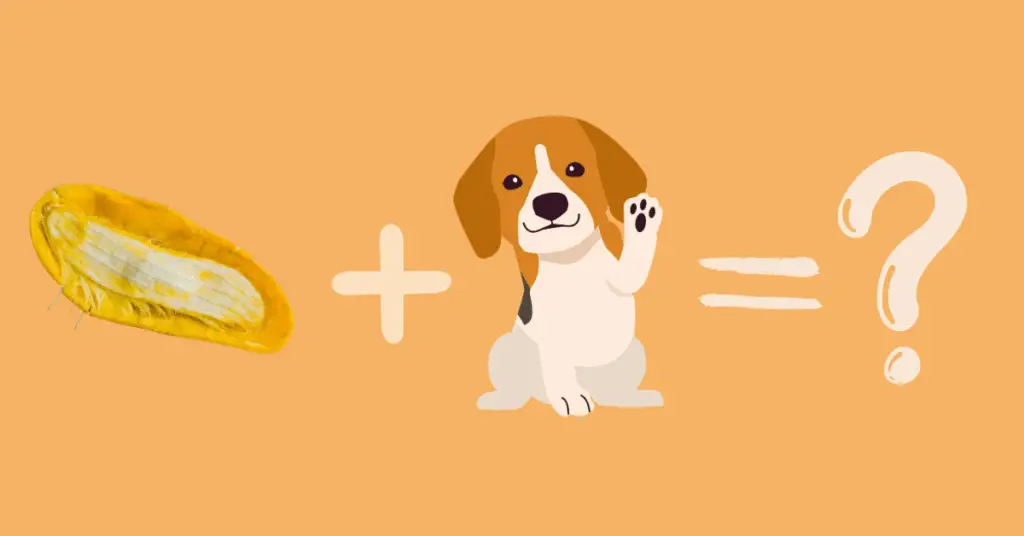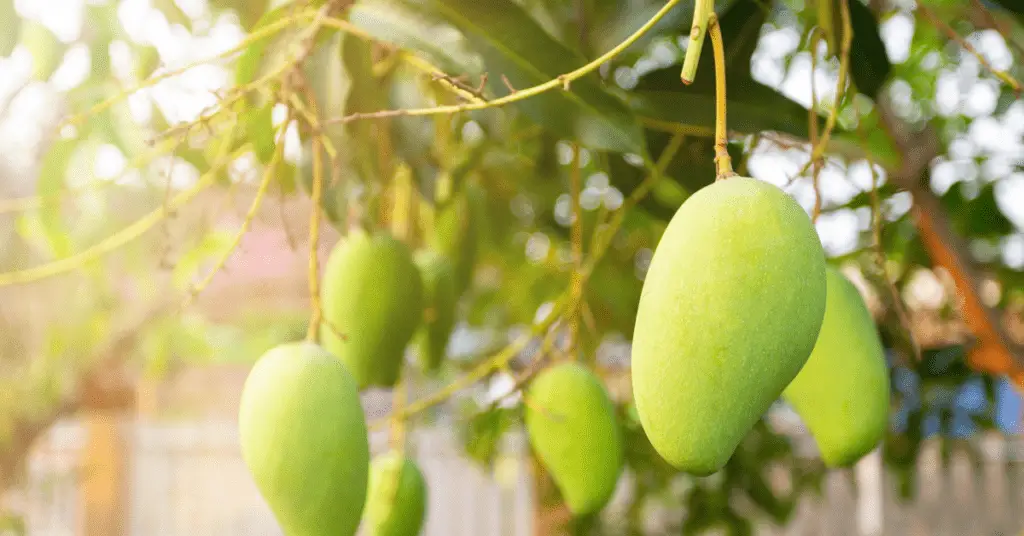
In the world of pet care, a common question that often arises is, “Can dogs eat mango seeds?” This question has sparked numerous debates and concerns among pet owners. Mangoes, known for their delicious and juicy fruit, sometimes come with a seed that can be a point of contention when it comes to our furry friends. In this comprehensive article, we aim to debunk the myths surrounding dogs and mango seeds, providing you with the information you need to make an informed decision about whether your canine companion can enjoy this tropical treat safely.
Can Dogs Eat Mango Seeds?
No, dogs should not eat mango seeds. Mango seeds, often referred to as pits, can be potentially harmful to dogs. These seeds contain cyanide compounds, which can be toxic to both humans and animals if ingested in significant quantities. While it’s uncommon for dogs to consume the seeds, it’s best to err on the side of caution and remove the seed before offering your furry friend a delicious mango treat. The sweet, fleshy part of the mango is safe for dogs to enjoy, but the seeds should be avoided to ensure their well-being.
The Allure of Mangoes
Mangoes are among the most beloved tropical fruits, renowned for their succulent, sweet flesh. Their unique flavor and nutritional richness have captured the taste buds of many, including our canine friends. Mangoes are packed with essential vitamins and minerals, making them a potentially healthy treat for dogs.
However, like many fruits, the question of whether the seeds are safe for dogs remains. To get to the bottom of this, we must first understand the composition of mango seeds and their potential implications on canine health.
The Composition of Mango Seeds
Mango seeds, often referred to as pits, are the hard, inner components of the mango fruit. They contain a mix of components, including:
- Cyanide Compounds: One of the primary concerns associated with mango seeds is the presence of cyanide compounds. These compounds, when consumed in large quantities, can be toxic to both humans and animals.
- Dietary Fiber: On the flip side, mango seeds contain dietary fiber, which can have potential benefits for your dog’s digestive health.
The Myth: Mango Seeds as a Fatal Snack
One prevalent myth surrounding mango seeds is that they can be fatal if ingested by dogs. While it’s true that cyanide compounds are present in the seeds, it’s important to delve into the nuances of this claim.
Cyanide Compounds: The Real Risk
Cyanide compounds, such as amygdalin, can indeed be harmful when ingested in large amounts. The concern arises from the dog’s ability to break down amygdalin, releasing cyanide, which is toxic. However, the question is whether a dog would consume enough mango seeds to pose a real threat.
The Reality: Unlikely Toxicity
Dogs, by nature, are unlikely to consume a significant quantity of mango seeds due to their tough, indigestible nature. It’s more common for dogs to devour the sweet, fleshy part of the mango and leave the pit behind. This natural behavior acts as a safeguard against the potential dangers of cyanide.
What to Do If My Dog Eats a Mango Seed?
Accidents happen, and in some cases, your curious canine may decide to munch on a mango seed. If you find yourself in this situation, it’s crucial to take swift action. Here’s what you should do:
- Stay Calm: First and foremost, remain calm. Panicking won’t help the situation and might even stress your dog further.
- Check for Choking: Assess if your dog is choking on the seed. If they are, it’s essential to address the situation immediately. If you’re unfamiliar with pet Heimlich maneuvers, consult your veterinarian or an animal emergency clinic for guidance.
- Contact Your Veterinarian: Reach out to your veterinarian or an emergency animal clinic to explain the situation. They will provide guidance based on the size and breed of your dog, as well as the amount of mango seed ingested.
- Observe Your Dog: Keep a close eye on your dog for any signs of discomfort, vomiting, diarrhea, or unusual behavior. These could be indicators of a problem.
What Happens to a Dog If They Swallow a Mango Seed Accidentally?

Mango seeds, like many fruit seeds, contain compounds that can be harmful to dogs if ingested in large quantities. Here’s what can happen if your dog swallows a mango seed accidentally:
- Choking Hazard: Mango seeds are relatively large and can pose a choking hazard, especially for small dogs. If the seed gets lodged in their throat, it can lead to distress and potentially become life-threatening.
- Gastrointestinal Distress: In most cases, if a dog swallows a mango seed, they will pass it naturally. However, the seed’s hard outer shell may not break down entirely in their digestive system, potentially causing discomfort, constipation, or even an intestinal blockage.
- Cyanide Concerns: Mango seeds, like many fruit pits, contain small amounts of cyanide. While the cyanide levels in a single seed are not typically enough to be lethal, they can still lead to mild poisoning, causing symptoms such as drooling, rapid breathing, and dilated pupils.
When Your Dog Eats a Whole Mango Pit: Home Remedy Tips
If your dog has swallowed a whole mango pit, it’s essential to act swiftly and responsibly. Swallowing a large and hard object like a mango pit can potentially pose a choking hazard or blockage in your dog’s digestive tract. Here are some home remedy tips to consider:
- Assess the Situation: First, stay calm and assess your dog’s condition. If your dog is choking, they may display signs such as coughing, gagging, or difficulty breathing. If you notice these symptoms, take immediate action.
- Perform the Heimlich Maneuver: If your dog is conscious but choking, you can attempt the Heimlich maneuver for dogs. Stand behind your dog, place your hands just below the ribcage, and exert firm, upward pressure to help dislodge the object.
- Monitor Your Dog: If the pit has been swallowed without immediate choking or distress, monitor your dog closely. Watch for signs of discomfort, such as excessive drooling, vomiting, or a change in behavior.
- Contact Your Veterinarian: It’s crucial to contact your veterinarian as soon as possible. Explain the situation and follow their guidance. They may recommend bringing your dog in for a physical examination or suggest home care.
- Hydration: Ensure your dog has access to clean water. This can help keep their throat and digestive tract moist, potentially aiding the passage of the mango pit.
- Watch for Symptoms: Continuously monitor your dog for signs of discomfort, constipation, or any unusual behavior. If you notice any of these signs, contact your vet immediately.
It’s important to remember that while home remedies can be useful in certain situations, a veterinarian’s expertise is irreplaceable when it comes to your dog’s health. If there is any doubt or concern about your dog’s well-being after swallowing a mango pit, don’t hesitate to seek professional veterinary advice.
How Many Mangoes Should a Dog Eat?
If you decide to share mango with your furry friend, it’s important to do so in moderation. While mango can be a tasty and nutritious treat, excessive consumption can lead to digestive issues. Here’s a general guideline:
- Small Breeds: For smaller dog breeds, a few small pieces of mango (minus the pit) should suffice as an occasional treat.
- Medium to Large Breeds: Medium to large dogs can enjoy a bit more mango, but it’s still crucial to keep it in moderation.
Remember that mango should only be an occasional addition to your dog’s diet and not a primary food source.
Is Mango Seed Toxic to Dogs?
While mango flesh is generally safe for dogs to consume in small quantities, the seed, also known as the pit or stone, poses a potential risk due to its hard shell and cyanide content. Cyanide is a toxic compound, and even small amounts can be harmful. Although it’s unlikely that your dog will ingest a lethal dose of cyanide from a single mango seed, it’s essential to exercise caution.
As a responsible pet owner, it’s best to remove the seed before offering mango to your dog. This simple precaution can prevent potential choking hazards and digestive issues. If your dog accidentally swallows a mango seed, monitor them closely for any signs of distress and consult your veterinarian as needed.
Our Recommendation
In the grand scheme of things, it’s essential to approach the question, “Can dogs eat mango seeds?” with a balanced perspective. While the potential dangers of cyanide compounds exist, the likelihood of a dog ingesting a harmful amount of mango seeds is low.
As responsible pet owners, it’s wise to remove the seed before offering your dog a tasty mango treat. This precaution ensures your pet enjoys the delicious and nutritious aspects of the fruit without unnecessary risks.
Mango Seeds & FAQ’s
Can dogs play with mango seeds?
Yes, dogs can play with mango seeds, but it’s essential to supervise them. Mango seeds are hard and can pose a choking hazard or potentially damage your dog’s teeth. Some dogs might enjoy batting a mango seed around like a toy, but always ensure their safety while doing so.
Can dogs have mango stones?
While dogs can technically consume mango stones (the pit or seed), it’s generally not recommended. Mango seeds contain small amounts of cyanide compounds, which can be toxic in larger quantities. To ensure your dog’s safety, it’s best to remove the pit before giving them a slice of mango.
Can dogs eat raw mango?

Yes, dogs can eat small amounts of raw mango in moderation. Raw mango is not toxic to dogs and can be a tasty treat. However, be mindful of the quantity you offer, as too much mango can upset your dog’s stomach due to its natural sugar content. Additionally, always remove the seed and any tough, indigestible parts before sharing raw mango with your pet.
Conclusion
In the realm of dog nutrition, the myth that mango seeds are a fatal snack is largely exaggerated. With responsible supervision and a common-sense approach, you can safely share a mango with your furry friend. While the seeds may offer some benefits in moderation, the risks associated with excessive consumption make it advisable to remove them before offering this tropical delight to your pet.
Remember, the key to a healthy and happy dog is a balanced and well-informed diet. Treats like mangoes can be enjoyed but should always be given in moderation. Your pet’s well-being is your top priority, and with the right knowledge, you can ensure they lead a happy and healthy life.

Tidigare fanns det skillnader i klackbreddsmåttet på olika Sky Dweller replika klockor modeller, då de första guldmodellerna med Oyster-armband hade en bryggbredd på 21 mm, medan de modeller som säljs med läderarmband hade en öppning på 22 mm.
I like this site very much, Its a rattling nice billet to read and
incur information.Expand blog